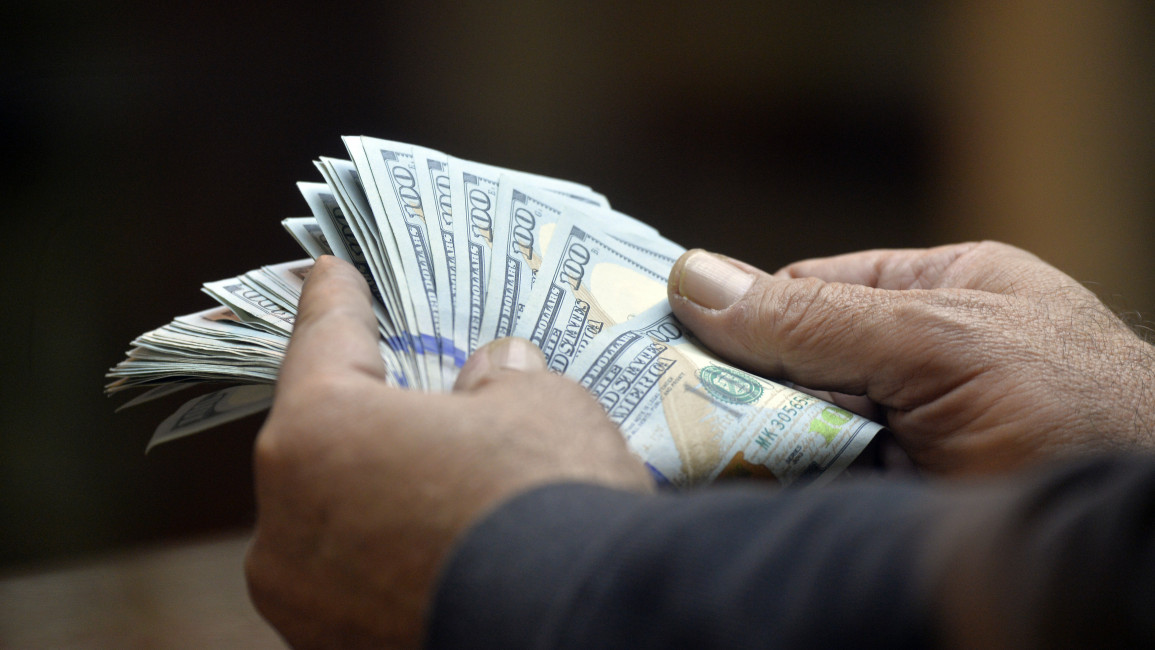Worries and anger as Lebanese pound sinks to historic low of 100,000 to the dollar
The Lebanese pound sank to a historic low of 100,000 against the dollar on the parallel market Tuesday, the latest grim milestone in the country's economic meltdown that has plunged most of the population into poverty.
The Lebanese pound, officially pegged at 15,000 to the dollar, was trading at 100,000 against the greenback, dealers said - a dizzying plunge from 1,507 before the economic crisis hit in 2019.
The currency's market value was at around 60,000 to the dollar in late January.
Activists have taken to social media to express their concern and anger following the historic low, and "grim milestone".
#Lebanon’s economic crisis has reached another grim milestone with the #lira reaching the record low of 100,000 to $1. #لبنان #لبنان_ينهار #ليرة #دولار
— Nicholas Frakes | نيكولاس فريكس (@nicfrakesjourno) March 14, 2023
"100,000 curses on you who brought us here, 100,000 curses on us who brought you here," one activist said.
Others highlighted fears that there is "no light at the end of the tunnel", stating Lebanon is in a "free fall".
Dollar is now 100000 LBP, it was 1500 in October 2019 when the economic crisis started. #Lebanon is in a free fall since then & no light at the end of the tunnel #Dollar #دولار #لبنان https://t.co/Do4RRSL8OJ
— Shada Omar شدا عمر (@Shadaomar) March 14, 2023
Lebanese banks that have long imposed draconian withdrawal restrictions - essentially locking depositors out of their life savings - were closed on Tuesday as they resumed an open-ended strike.
The strike began early last month to protest what the Association of Banks in Lebanon described as "arbitrary" judicial measures against lenders after depositors filed lawsuits to retrieve their savings.
In response to the lawsuits, some judges sought to seize the funds of bank directors or board members, or to force lenders to pay out customers' dollar deposits in pounds at the old 1,507 exchange rate.
The moves by these banks to resume their strike coincided with a recent announcement by the Secretary-General of the Association of Banks in Lebanon, Fadi Khalaf, that there is no liquidity in Lebanese banks.
Khalaf stated this is true in terms of bank deposits in local dollars with the Banque du Liban, which are not subject to cash withdrawals or transfers abroad, according to The New Arab's Arabic service Al-Araby Al-Jadeed.
Over the past three years, bank withdrawal limits have sparked public outrage that has seen some Lebanese resort to armed hold-ups in a bid to lay hands on their own money.
The facades of many banks in the capital have therefore become almost unrecognisable from the outside, covered in protective metal panels, while ATMs have been vandalised, and bank branches closed for days at a time.
The strike comes as all eyes are on a European hearing into the Central Bank governor, Riad Salameh, which will occur on Wednesday as part of a cross-border corruption probe into him and close associates.
Salameh is accused of crimes including embezzlement, money laundering, forgery, and illegal enrichment. Charges were also filed against his brother, Raja, and an assistant, Marianne Howayek.
They all deny the charges against them.
Despite the gravity of the crisis, the political elite, which has been widely blamed for the country's financial collapse, has failed to take action.
Since last year, the country has had no president and only a caretaker government, amid persistent deadlock between rival alliances in parliament.



